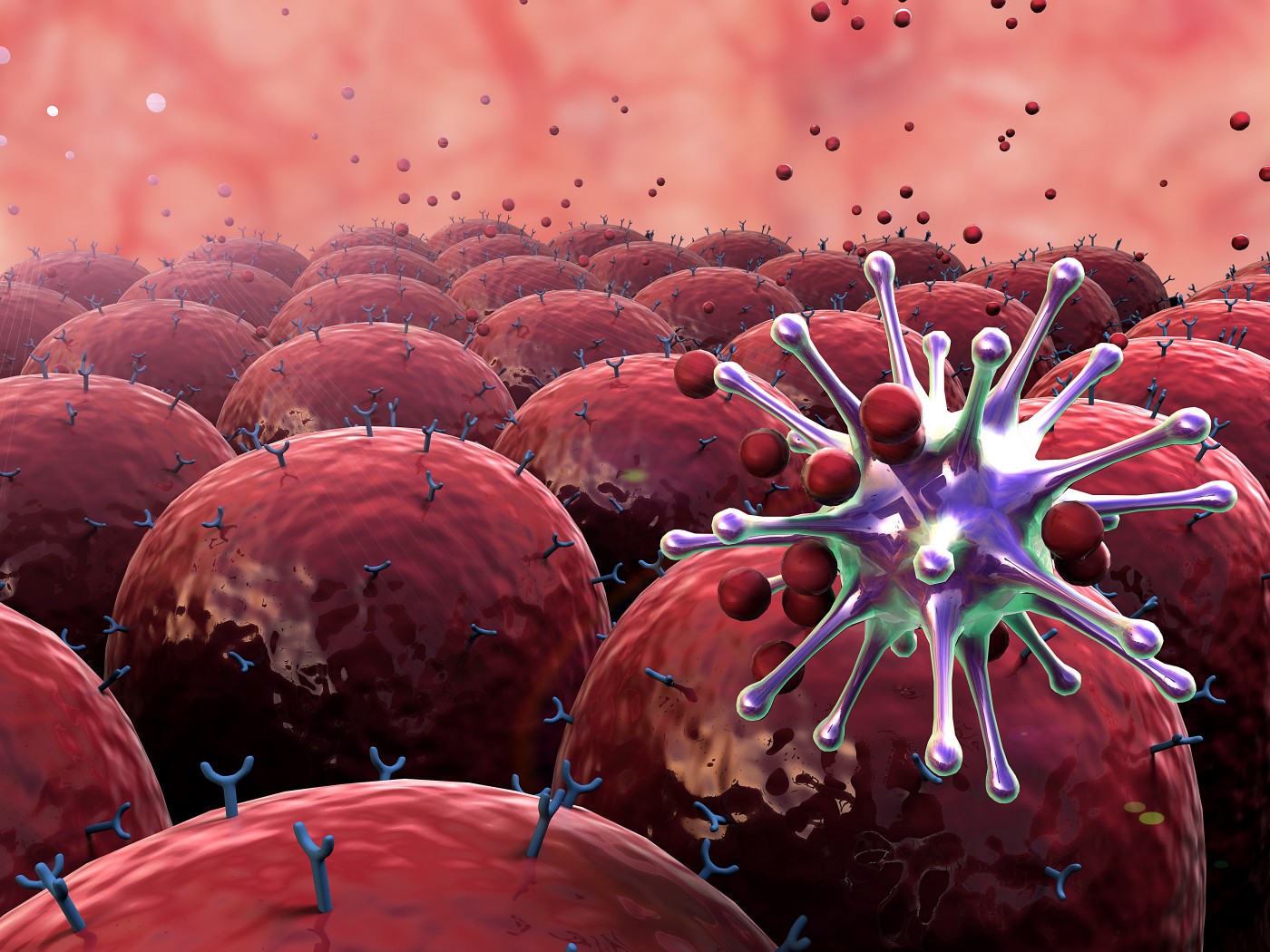Amgen announced that the European Commission (EC) has approved Imlygic as a treatment for adult patients with unresectable melanoma that is regionally or distantly metastatic — Stage IIIB, IIIC and IVM1a — and with no brain, bone, lung, or other visceral disease. The approval followed beneficial results reported in these patients in a Phase 3 clinical trial.
Imlygic (talimogene laherparepvec) is a genetically modified live oncolytic herpes virus therapy, used to treat melanoma lesions that cannot be removed completely by surgery. Imlygic is injected directly into the melanoma lesions, where it replicates inside cancer cells, causing the cells to rupture and die, and initiates an anti-tumor immune response. It is the first oncolytic immunotherapy showing clinical benefit in a Phase 3 clinical trial for patients with metastatic melanoma.
A treatment course consists of a series of injections into the lesions. After the initial injection, a second dose is administered three weeks later, followed by additional doses every two weeks for at least six months, unless other treatment is required or until there are no remaining injectable lesions to treat.
“As the first oncolytic immunotherapy authorized in the European Union, the approval of IMLYGIC is an important milestone for this new class of drugs, bringing patients with a rare and deadly form of skin cancer a much needed new treatment option,” Sean E. Harper, MD, executive vice president of Research and Development at Amgen, said in a press release. “By igniting the body’s own immune system, IMLYGIC can initiate an anti-tumor immune response, providing meaningful and durable response rates in the early stage metastatic melanoma patient.”
Melanoma is a significant public health problem, and an estimated 22,000 people died of the disease in the European Union in 2012. When detected in early stages, this malignancy is curable; however, metastatic melanoma is one of the most difficult cancers to treat.
The EC approval involved a review of exploratory subgroup analyses of the OPTiM trial. The results showed a durable response rate (DRR) in patients with Stage IIIB, IIIC and IVM1a melanoma of 25.2% versus 1.2% in a control group of patients treated with GM-CSF, and an overall response rate (ORR) of 40.5% versus 2.3%.
The median overall survival (OS) for the Imlygic-treated patients treated was 41.1 months, versus 21.5 months in those given GM-CSF.
Because the analysis was exploratory and based on current evidence, Imlygic has does not yet have an established OS effect.
The most common side effects observed in study participants were fatigue, chills, fever, nausea, flu-like symptoms, and pain at the injection site. Herpes virus infection can also occur. Overall, 98% of adverse reactions reported were mild or moderate in severity. The most common grade 3 or higher adverse reaction was cellulitis, and no treatment-related deaths occurred.
The EC approval grants a centralized marketing authorization in all 28 EU countries. In the U.S., Imlygic is approved for the treatment of melanoma lesions in the skin and lymph nodes.


